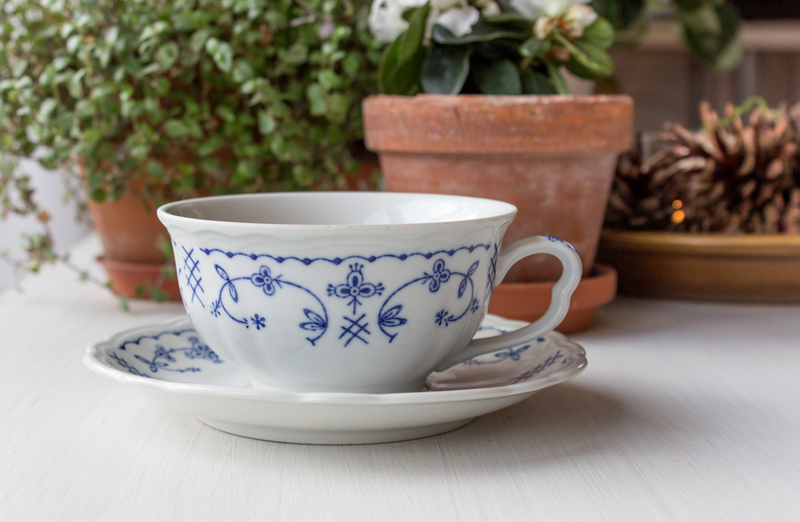The Path to Peace: Decluttering and Minimalist Living
Imagine waking up in a space that feels calm, clean, and truly yours. The journey toward inner peace often starts with our surroundings. In today's fast-paced world, decluttering and minimalist living have become popular routes to mental clarity, reduced stress, and an enhanced quality of life. This comprehensive guide explores the path to peace through decluttering and adopting a minimalist lifestyle, offering actionable insights, practical tips, and inspiration to embrace simplicity and tranquility.
What is Minimalist Living?
At its core, minimalist living is about intentionally reducing excess in our lives to make space for what truly matters. Instead of accumulating possessions or overwhelming ourselves with commitments, we prioritize experiences and items that bring us value and joy. Minimalism isn't about deprivation; it's about creating freedom and peace of mind.
Key Principles of Minimalist Living
- Intentionality: Owning and doing things with purpose
- Value-Centric Choices: Focusing on quality over quantity
- Mindful Consumption: Being conscious of purchases and habits
- Clarity of Space and Mind: Decluttering physical and mental distractions

Understanding the Benefits of Decluttering
Decluttering is the gateway to living with less. Removing physical clutter can lead to notable psychological, emotional, and even financial benefits. Here's how embracing the decluttering process and minimalism can improve your overall well-being:
Emotional and Psychological Advantages
- Reduces Stress: A tidy space is proven to lower anxiety and tension.
- Boosts Mood: Clean environments foster positive emotions and motivation.
- Improves Focus: Less distraction means better mental clarity.
- Enhances Productivity: An organized space supports effective work and creativity.
Physical and Environmental Benefits
- Healthier Living Spaces: Decluttering reduces dust, allergens, and hazards.
- Eco-Friendly Choices: Minimalism encourages sustainable consumption and recycling.
- Easy Maintenance: Fewer items lead to easier cleaning and upkeep.
Financial Perks
- Saves Money: You buy less and avoid duplicate or unnecessary purchases.
- Earns Money: Selling unused items can generate extra income.
- Encourages Smart Spending: Minimalist living promotes thoughtful budgeting.
The Step-by-Step Guide to Decluttering Your Home
Ready to embark on your path to peace? Decluttering doesn't happen overnight, but with commitment, you'll notice remarkable changes. Here's a thorough, room-by-room approach to tidying up your living spaces and starting a minimalist journey:
1. Set Clear Decluttering Goals
Begin by identifying your motivations for decluttering. Do you want more space, less stress, or a fresh start? Setting goals keeps you motivated throughout the process.
2. Start Small
Avoid overwhelm by tackling one area at a time:
- Drawers and Cabinets: Empty, sort, and return only necessary items.
- Closets: Remove everything, keep what you love and use, donate the rest.
- Surfaces: Clear counters, tables, and desks of non-essential objects.
3. The Four-Box Method
Use this simple strategy for every space:
- Keep
- Donate/Sell
- Recycle
- Discard
4. Evaluate Each Item
Ask yourself:
- Do I use this regularly?
- Does it bring me joy or serve a purpose?
- If lost, would I replace it?
If the answer is "no," it's time to let go.
5. Organize What Remains
Assign a designated spot for every item. Group like items together and use storage solutions that promote both accessibility and simplicity.
6. Create Lasting Routines
Minimalist living requires establishing daily or weekly habits to maintain your tidy space. Make regular decluttering a part of your lifestyle for long-term peace and simplicity.
Embracing Minimalist Living: Beyond Physical Stuff
Minimalism extends far beyond our belongings. To truly walk the path to peace, consider simplifying other aspects of your life.
Minimalist Schedules and Workspaces
- Limit time commitments only to the most meaningful activities.
- Say no to obligations that don't align with your values.
- Maintain a clean, distraction-free workspace for enhanced focus.
Digital Decluttering
- Clean out unused apps, emails, and files.
- Unsubscribe from unnecessary email lists.
- Organize digital photos, documents, and folders for easy access.
Nurturing Mindful Relationships
- Surround yourself with positive and supportive individuals.
- Let go of relationships that bring negativity or drain your energy.
Emphasizing Experiences Over Things
- Pursue hobbies, travel, and memories over buying new possessions.
- Spend quality time with loved ones to foster happiness and connection.
The Psychology Behind Minimalism and Decluttering
Why does decluttering feel so liberating? Research shows that clutter causes sensory overload, making it difficult to concentrate and relax. When you reduce excess and live minimally, your brain can process your surroundings more peacefully, fostering creativity and mindfulness.
The Impact of Clutter on Mental Health
- Decision Fatigue: Too many choices can overwhelm the mind. Minimalism trims options, making decisions easier.
- Emotional Attachment: Clutter can represent unresolved past memories or guilt. Letting go frees emotional energy.
- Enhanced Self-Image: A tidy space reflects your values and helps build self-confidence.
Decluttering and Minimalist Living: Practical Examples
The Minimalist Wardrobe
Curate a capsule wardrobe using quality, versatile pieces you love. This reduces daily stress, boosts confidence, and simplifies laundry routines.
The Minimalist Kitchen
- Only keep utensils and gadgets you use frequently.
- Store pantry items in clear, labeled containers for visibility and organization.
- Plan meals to avoid overstocking and food waste.
The Minimalist Workspace
- Keep only essential tools on your desk.
- Regularly sort through paperwork and digital files.
- Personalize with one or two meaningful decor elements for joy and inspiration.
Tips to Maintain Minimalism for Life
- Implement a "One In, One Out" Rule: When you buy something new, donate or sell something old.
- Schedule Regular Declutter Sessions: Even a monthly quick sweep keeps clutter at bay.
- Be Mindful When Shopping: Ask yourself if new purchases truly add value to your life.
- Share Minimalism with Family: Teach kids and partners the benefits of living with less.
- Celebrate Progress, Not Perfection: Minimalism is a lifelong journey, not a destination.
Common Challenges and How to Overcome Them
Emotional Attachment to Items
- Take photos of sentimental items before letting them go.
- Find new homes for items by donating them to those in need.
Dealing with Guilt
Remember, your belongings do not define you or your relationships. Gifting or donating can give items a new purpose, easing guilt.
Lack of Time
- Dedicate just 10-15 minutes daily to decluttering small areas.
- Enlist family members or friends to help for added motivation.
Resistance from Family or Housemates
- Lead by example and share the benefits of minimalist living.
- Involve everyone in decision-making to foster a shared sense of purpose.
Minimalism as a Lifelong Habit
Adopting a minimalist lifestyle is not a one-time event but a continuous practice. As life changes, so will your needs and values. Regular decluttering, mindful purchasing, and prioritizing simplicity empower you to navigate challenges and find lasting peace.
Ultimately, the journey toward peace begins with a single step--a decision to live with less and embrace more of what makes life meaningful.

Resources for Minimalist Living and Decluttering Inspiration
- Books: "The Life-Changing Magic of Tidying Up" by Marie Kondo, "Minimalism: Live a Meaningful Life" by The Minimalists
- Podcasts: "The Minimalists Podcast," "Clutterbug Podcast"
- Websites: Becoming Minimalist, Zen Habits, The Minimalists
- Community: Join online forums or local groups focused on minimalist living for support and encouragement.
Final Thoughts: The Serenity of Simplified Living
The path to peace through decluttering and minimalist living is an immensely rewarding one. As you clear physical, mental, and digital clutter, you'll discover newfound freedom, joy, and well-being. Start small, move intentionally, and savor the simplicity you create--one decision, one space, one moment at a time. Let minimalism illuminate your path to a more peaceful, purposeful life.